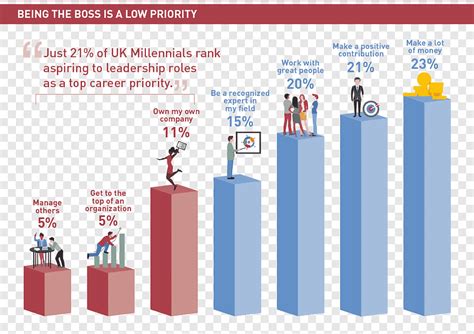
Warren Buffett champions the power of investing in oneself, particularly in developing valuable skills, as a potent inflation hedge that also avoids taxation. He consistently emphasizes that enhancing one’s skills is the best investment anyone can make, surpassing traditional assets in its ability to generate long-term returns and improve earning potential.
Warren Buffett, the chairman and CEO of Berkshire Hathaway, has repeatedly stressed that the single best investment anyone can make is in themselves, specifically through the development of valuable skills. He argues that this form of investment is not only an effective hedge against inflation but also escapes the burden of taxation, unlike many other investment vehicles. Buffett’s rationale stems from the idea that improving one’s abilities and knowledge directly translates into increased earning power, providing a return that compounds over time and is impervious to market fluctuations and inflationary pressures.
“Anything you do to improve your own talents and make yourself more valuable will get paid off in appreciating real purchasing power,” Buffett has stated, highlighting the direct correlation between skill development and financial well-being. He believes that while physical assets can depreciate and market investments can be volatile, the investment in oneself consistently appreciates.
The Power of Self-Investment as an Inflation Hedge
In an economic environment characterized by rising inflation, individuals often seek assets that can maintain or increase their value over time. Traditional inflation hedges include commodities like gold, real estate, and inflation-indexed securities. However, Buffett posits that investing in oneself through skill development offers a more reliable and tax-efficient strategy.
Buffett’s viewpoint is rooted in the concept of human capital. By acquiring new skills or enhancing existing ones, individuals become more productive and valuable to employers or clients. This increased value translates into higher wages, better job opportunities, and greater financial security. Unlike physical assets, which can be affected by market conditions and economic downturns, the skills and knowledge an individual possesses remain a constant source of value.
“Nobody can take away what you’ve got in yourself, and everybody has potential they haven’t used yet,” Buffett has remarked, underscoring the untapped potential within each individual and the enduring nature of self-investment.
Tax Advantages of Skill Development
One of the most appealing aspects of investing in oneself, according to Buffett, is its tax efficiency. While traditional investments like stocks, bonds, and real estate are subject to capital gains taxes, dividends taxes, or property taxes, the returns from skill development are taxed as ordinary income. This difference can be significant over the long term.
For example, if an individual invests in a training program that enhances their skills and subsequently leads to a higher salary, the increased income is taxed at their marginal tax rate. However, the initial investment in the training program itself is often tax-deductible as an educational expense, further reducing the overall tax burden.
Moreover, the benefits of skill development extend beyond immediate financial gains. Improved skills can lead to career advancement, job satisfaction, and increased opportunities for entrepreneurship. These intangible benefits are not only valuable in themselves but also contribute to long-term financial stability and personal fulfillment.
Practical Examples of Self-Investment
Buffett’s emphasis on self-investment can be applied in various practical ways. Some examples include:
-
Education and Training: Formal education, such as college degrees and advanced certifications, can significantly enhance an individual’s earning potential. Additionally, vocational training and skill-specific courses can provide valuable expertise in high-demand fields.
-
Professional Development: Attending workshops, conferences, and seminars can help individuals stay abreast of the latest industry trends and develop new skills. Many employers offer professional development opportunities as part of their benefits packages.
-
Online Learning: The proliferation of online learning platforms has made it easier than ever to acquire new skills at one’s own pace. Platforms like Coursera, edX, and Udemy offer a wide range of courses in various disciplines.
-
Mentorship and Networking: Seeking guidance from experienced professionals and building a strong network can provide invaluable insights and opportunities for career advancement.
-
Reading and Research: Staying informed about current events, industry trends, and emerging technologies is crucial for maintaining a competitive edge in the job market. Reading books, articles, and research papers can help individuals expand their knowledge base and develop critical thinking skills.
Buffett’s Personal Examples
Buffett himself is a living testament to the power of self-investment. Throughout his career, he has consistently emphasized the importance of reading, learning, and seeking out new knowledge. He famously spends a significant portion of his day reading financial statements, news articles, and books.
“I just sit in my office and read all day,” Buffett has said, highlighting the importance of continuous learning in his success. He believes that reading and research are essential for making informed investment decisions and staying ahead of the curve.
Moreover, Buffett has always been a proponent of learning from others. He has sought guidance from mentors like Benjamin Graham, the father of value investing, and has surrounded himself with talented individuals who can challenge his thinking and provide new perspectives.
Comparison with Traditional Investments
While Buffett advocates for self-investment as a primary strategy, he does not dismiss the importance of traditional investments. However, he believes that self-investment should be prioritized, especially during times of economic uncertainty.
Compared to traditional investments like stocks and bonds, self-investment offers several advantages:
-
Higher Returns: The returns from self-investment are often higher than those from traditional investments, particularly over the long term. While the stock market can be volatile and unpredictable, the value of one’s skills and knowledge tends to appreciate steadily over time.
-
Lower Risk: Self-investment is generally less risky than traditional investments. While market investments can be affected by economic downturns and geopolitical events, the demand for skilled workers remains relatively constant.
-
Greater Control: Individuals have more control over their self-investment than they do over traditional investments. They can choose which skills to develop, how to develop them, and when to apply them.
-
Tax Efficiency: As mentioned earlier, self-investment offers significant tax advantages compared to traditional investments.
Criticisms and Considerations
While Buffett’s advice on self-investment is widely respected, it is essential to consider some potential criticisms and limitations:
-
Time and Effort: Self-investment requires significant time and effort. It is not a passive activity and requires dedication and discipline.
-
Uncertainty of Returns: While the returns from self-investment are generally high, they are not guaranteed. The job market can be competitive, and some skills may become obsolete over time.
-
Initial Investment: Some forms of self-investment, such as formal education, can be expensive and require significant upfront investment.
-
Opportunity Cost: Investing time and resources in self-improvement may come at the expense of other opportunities, such as pursuing a different career path or starting a business.
The Role of Education and Skill Development in Economic Growth
Buffett’s emphasis on self-investment aligns with broader economic research on the importance of education and skill development for economic growth. Economists have long recognized that human capital is a key driver of productivity, innovation, and overall prosperity.
Countries with high levels of education and a skilled workforce tend to have higher rates of economic growth, lower unemployment rates, and greater income equality. Investing in education and training can also help reduce poverty and improve social mobility.
In today’s rapidly changing global economy, the demand for skilled workers is increasing. Automation, artificial intelligence, and other technological advancements are transforming industries and creating new job opportunities. Individuals who possess in-demand skills are more likely to succeed in this competitive environment.
The Future of Self-Investment
As technology continues to evolve and the job market becomes increasingly competitive, the importance of self-investment will only grow. Individuals who prioritize skill development and continuous learning will be best positioned to thrive in the future.
Online learning platforms, vocational training programs, and professional development opportunities will become even more accessible and affordable, making it easier for individuals to acquire new skills and enhance their existing ones.
Moreover, employers will increasingly value employees who are adaptable, resilient, and able to learn new things quickly. These qualities can be cultivated through self-investment and a commitment to lifelong learning.
Conclusion
Warren Buffett’s advocacy for self-investment as an inflation hedge and tax-efficient strategy is a valuable reminder of the importance of human capital. By investing in their skills and knowledge, individuals can increase their earning potential, improve their financial security, and enhance their overall well-being. While traditional investments have their place, self-investment should be a top priority for anyone seeking to build long-term wealth and success. Buffett’s long career and continued success provides ample evidence of this investment’s effectiveness. It’s an investment that no one can take away, and consistently appreciates.
Frequently Asked Questions (FAQs)
-
Why does Warren Buffett consider investing in oneself the best investment?
Warren Buffett believes investing in oneself, particularly in developing valuable skills, is the best investment because it directly increases earning potential, is a hedge against inflation, and is tax-efficient. He argues that skills and knowledge are assets that appreciate over time and are not subject to market fluctuations like traditional investments. As Buffett stated, “Anything you do to improve your own talents and make yourself more valuable will get paid off in appreciating real purchasing power.”
-
How does investing in oneself serve as an inflation hedge?
Investing in oneself acts as an inflation hedge because it enhances an individual’s ability to command higher wages or secure better job opportunities. As inflation erodes the purchasing power of money, skilled individuals can negotiate for higher compensation to offset these effects. Unlike physical assets that may depreciate, the value of skills tends to increase over time, making it a reliable hedge against inflation.
-
What are the tax advantages of investing in oneself compared to traditional investments?
Unlike traditional investments such as stocks, bonds, and real estate, which are subject to capital gains taxes, dividend taxes, or property taxes, the returns from self-investment are taxed as ordinary income. However, the initial investment in training or education is often tax-deductible as an educational expense, reducing the overall tax burden. This tax efficiency makes self-investment an attractive option.
-
Can you provide some practical examples of how one can invest in themselves?
Practical examples of self-investment include:
- Education and Training: Pursuing formal education like college degrees or vocational training to acquire specific skills.
- Professional Development: Attending workshops, conferences, and seminars to stay updated with industry trends.
- Online Learning: Utilizing platforms like Coursera, edX, and Udemy for acquiring new skills.
- Mentorship and Networking: Seeking guidance from experienced professionals and building a strong network for career advancement.
- Reading and Research: Staying informed through books, articles, and research papers to expand knowledge and critical thinking skills.
-
What are some potential criticisms or limitations of Buffett’s advice on self-investment?
Some criticisms and limitations include:
- Time and Effort: Self-investment requires significant time, dedication, and discipline.
- Uncertainty of Returns: While generally high, returns are not guaranteed, and the job market can be competitive.
- Initial Investment: Some forms, like formal education, can be expensive and require significant upfront investment.
- Opportunity Cost: Investing time and resources may come at the expense of other opportunities.
- Skill Obsolescence: The rapid change in technology may make skills obsolete over time.
Expanded Analysis: The Nuances of Self-Investment
While Buffett’s advice is clear and compelling, it is crucial to delve deeper into the nuances of self-investment to fully appreciate its implications and potential pitfalls.
Identifying Valuable Skills:
The effectiveness of self-investment hinges on identifying skills that are in demand and likely to remain relevant in the future. This requires a careful assessment of current and future job market trends. Some skills that are consistently valued include:
- Technical Skills: Proficiency in areas such as software development, data analysis, cybersecurity, and artificial intelligence.
- Soft Skills: Abilities such as communication, problem-solving, critical thinking, leadership, and teamwork.
- Industry-Specific Skills: Expertise in specific sectors such as healthcare, finance, engineering, or marketing.
It is essential to choose skills that align with one’s interests and aptitudes. Passion and intrinsic motivation are critical for sustaining the effort required to master new skills.
Strategic Planning for Self-Investment:
Self-investment should be approached strategically, with clear goals and a well-defined plan. This plan should include:
- Skill Assessment: Identifying current strengths and weaknesses, and determining which skills need improvement or acquisition.
- Goal Setting: Establishing specific, measurable, achievable, relevant, and time-bound (SMART) goals for skill development.
- Resource Allocation: Determining the time, money, and other resources required to achieve the goals.
- Learning Methods: Selecting the most effective learning methods, such as formal education, online courses, mentorship, or self-study.
- Progress Tracking: Monitoring progress and making adjustments to the plan as needed.
The Role of Lifelong Learning:
Self-investment is not a one-time activity but a lifelong pursuit. In today’s rapidly changing world, continuous learning is essential for staying relevant and competitive in the job market. This requires a commitment to ongoing professional development and a willingness to adapt to new technologies and industry trends.
Lifelong learning can take many forms, including:
- Reading books and articles: Staying informed about current events, industry trends, and emerging technologies.
- Attending conferences and workshops: Learning from experts and networking with peers.
- Taking online courses: Acquiring new skills and knowledge at one’s own pace.
- Seeking mentorship: Learning from experienced professionals and receiving guidance and support.
- Experimenting and trying new things: Developing new skills and expanding one’s comfort zone.
Balancing Self-Investment with Other Priorities:
While self-investment is important, it should not come at the expense of other priorities, such as family, health, and personal well-being. It is essential to find a balance between investing in oneself and maintaining a healthy and fulfilling life.
This requires careful time management and prioritization. It may be necessary to make trade-offs and sacrifices to allocate time and resources to self-investment. However, it is important to ensure that these sacrifices do not negatively impact other important areas of life.
The Ethical Considerations of Self-Investment:
Self-investment should be pursued ethically and responsibly. It is important to avoid misrepresenting one’s skills or qualifications, and to use newly acquired skills in a manner that benefits society and does not harm others.
Moreover, self-investment should not be used as a means of exploiting others or taking advantage of vulnerable individuals. It is essential to use one’s skills to contribute to the common good and to promote fairness and equity.
The Broader Implications of Self-Investment:
Self-investment has broader implications for society as a whole. When individuals invest in their skills and knowledge, they become more productive, innovative, and engaged citizens. This leads to economic growth, social progress, and a more vibrant and prosperous society.
Governments and organizations should support self-investment through policies and programs that promote education, training, and lifelong learning. This includes providing access to affordable education, funding research and development, and creating opportunities for professional development.
The Psychological Benefits of Self-Investment:
Beyond the financial and economic benefits, self-investment also offers significant psychological benefits. It can boost self-esteem, increase confidence, and enhance one’s sense of purpose and fulfillment.
Learning new skills and expanding one’s knowledge can also be a source of intellectual stimulation and personal growth. It can help individuals stay mentally sharp, adapt to change, and maintain a positive outlook on life.
Conclusion: A Holistic Approach to Self-Investment
Warren Buffett’s advice on self-investment provides a valuable framework for building long-term wealth and success. However, it is essential to adopt a holistic approach that considers the broader implications of self-investment and integrates it into a well-rounded life.
By identifying valuable skills, developing a strategic plan, committing to lifelong learning, balancing self-investment with other priorities, and pursuing self-investment ethically and responsibly, individuals can unlock their full potential and create a more prosperous and fulfilling future.
Ultimately, self-investment is not just about acquiring new skills or increasing earning potential. It is about becoming a better version of oneself and contributing to a better world. It’s about continuous growth, resilience, and adaptability in a world that’s constantly changing. And as Buffett notes, no one can take that away from you.









